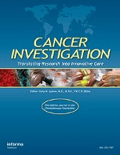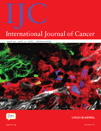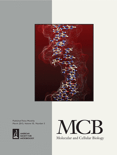
CARCINOGENESIS
Scope & Guideline
Illuminating Pathways in Cancer Biology and Therapy
Introduction
Aims and Scopes
- Molecular Mechanisms of Carcinogenesis:
Research exploring the cellular and molecular pathways that lead to cancer development, including genetic mutations, epigenetic changes, and signaling pathways. - Cancer Biology and Microenvironment:
Studies investigating the interactions between cancer cells and their surrounding microenvironment, including the role of tumor-associated macrophages, extracellular vesicles, and stromal cells. - Preventive and Therapeutic Strategies:
Research aimed at developing and evaluating novel preventive measures and therapeutic interventions for various cancer types, including drug efficacy and resistance mechanisms. - Biomarkers and Prognostic Indicators:
Identification and validation of biomarkers for early detection, prognosis, and treatment response in cancer patients, utilizing genomic, transcriptomic, and proteomic approaches. - Environmental and Lifestyle Factors in Cancer Risk:
Investigations into how environmental exposures, dietary habits, and lifestyle choices contribute to cancer risk and progression. - Technological Innovations in Cancer Research:
Application of advanced technologies such as machine learning, bioinformatics, and next-generation sequencing to enhance our understanding of cancer biology.
Trending and Emerging
- Cancer Immunotherapy and Microenvironment Interactions:
There is a rising interest in understanding how the immune microenvironment influences tumor progression and response to therapy, particularly in relation to immune checkpoint inhibitors. - Role of Non-Coding RNAs in Cancer:
Research on long non-coding RNAs (lncRNAs) and circular RNAs (circRNAs) as significant regulators of cancer biology is increasingly prominent, suggesting their potential as therapeutic targets or biomarkers. - Metabolic Reprogramming in Cancer:
Studies exploring how cancer cells alter metabolic pathways to support growth and survival are on the rise, highlighting the importance of metabolism in cancer therapy. - Machine Learning and AI Applications:
The application of machine learning and artificial intelligence to predict cancer outcomes, identify new therapeutic targets, and analyze complex datasets is rapidly increasing. - Personalized Medicine Approaches:
There is a clear trend towards personalized medicine, with research focusing on tailoring treatments based on individual genetic profiles and tumor characteristics. - Impact of Gut Microbiota on Cancer:
Emerging research on the relationship between gut microbiota and cancer development or treatment response is gaining attention, indicating a shift towards understanding the host-microbe interactions.
Declining or Waning
- Traditional Chemotherapy Mechanisms:
Research focused on classical chemotherapy mechanisms and their direct effects on cancer cells is less prevalent, as newer targeted therapies and immunotherapies gain attention. - Single-Agent Drug Studies:
There is a noticeable decrease in studies solely investigating the efficacy of single-agent chemotherapeutics, with a growing preference for combination therapies and multi-target approaches. - Basic Histopathological Studies:
Traditional histopathological analyses without integrating molecular or genetic data seem to be less common, as the field moves towards more comprehensive, multi-omics studies. - Animal Models of Cancer:
While still relevant, the reliance on traditional animal models is decreasing as researchers explore alternative models, including patient-derived xenografts and organoids. - General Epidemiological Studies:
Generic epidemiological studies that do not incorporate molecular or mechanistic insights are becoming less frequent, as the emphasis shifts towards more integrative and translational research.
Similar Journals

CANCER INVESTIGATION
Pioneering insights in oncology for a healthier tomorrow.CANCER INVESTIGATION is a distinguished peer-reviewed journal published by Taylor & Francis Inc, dedicated to the advancing field of cancer research and oncology. With an ISSN of 0735-7907 and E-ISSN of 1532-4192, this journal has been a pivotal resource for professionals and researchers since its inception in 1983, continually contributing to the evolving landscape of cancer investigation until its convergence in 2024. CANCER INVESTIGATION boasts noteworthy rankings in 2023, including Q3 in Cancer Research and Q2 in Medicine (miscellaneous), highlighting its relevance and impact in these critical areas. The journal's commitment to disseminating innovative research and comprehensive reviews makes it an essential platform for those engaged in cancer studies and related disciplines. While currently not available as an open-access publication, CANCER INVESTIGATION remains an invaluable tool for understanding the complexities of cancer, offering insights that drive scientific advancements and improve patient outcomes.

EXPERIMENTAL CELL RESEARCH
Unveiling Innovations in Experimental ResearchEXPERIMENTAL CELL RESEARCH is a highly respected journal published by Elsevier Inc, specializing in the dynamic and ever-evolving field of Cell Biology. With an impact factor positioned in the Q2 quartile for 2023, it ranks at the 124th position out of 285 in the Scopus Ranks, indicating a solid reputation among peers in the domains of biochemistry, genetics, and molecular biology. Since its inception in 1950, the journal has contributed significantly to the dissemination of groundbreaking research, providing a platform for studies that explore the nuances of cellular mechanisms, processes, and experimental methodologies. Although the journal currently does not offer open access, its commitment to high-quality, peer-reviewed research continues to attract submissions from leading scientists and scholars across the globe. Researchers, professionals, and students alike will find this journal an invaluable resource for keeping abreast of current developments and innovative breakthroughs in cellular science.

Oncologie
Bridging theory and practice in cancer care.Oncologie is a distinguished academic journal published by WALTER DE GRUYTER GMBH, focusing on the dynamic and vital field of oncology. Established in 1999 and continuously published until 2024, this journal provides a platform for high-quality research and advancements in cancer treatment, prevention, and diagnosis. With an ISSN of 1292-3818 and an E-ISSN of 1765-2839, it is indexed in various databases, contributing to its growing visibility. Although categorized in the Q3 quartile for oncology research as of 2023, Oncologie offers essential insights and fosters scholarly dialogue among researchers, professionals, and students interested in oncology. Its unique contributions aim to bridge the gap between theoretical frameworks and clinical applications, making it a valuable resource for those seeking to advance their knowledge and expertise in cancer research.

INTERNATIONAL JOURNAL OF CANCER
Connecting researchers to the latest in cancer advancements.INTERNATIONAL JOURNAL OF CANCER, published by Wiley, stands as a premier platform for the dissemination of cutting-edge research in the fields of cancer research and oncology. With an impressive impact factor reflecting its rigorous peer-review process and significant contribution to the scientific community, this journal is categorized in Q1 for both Cancer Research and Oncology as of 2023. It boasts notable rankings, being placed 38th among 404 journals in Medicine - Oncology and 32nd among 230 in Biochemistry, Genetics, and Molecular Biology - Cancer Research, positioning it within the 90th and 86th percentiles, respectively. Since its inception in 1966 and continuing to 2024, the journal has played a pivotal role in advancing our understanding of cancer biology, treatment modalities, and innovative therapeutic approaches. While it operates under a subscription model, the journal is committed to making valuable research accessible to a broader scientific audience. Researchers, professionals, and students alike will find the INTERNATIONAL JOURNAL OF CANCER an essential resource for staying abreast of the latest advancements in cancer science.

CELL RESEARCH
Connecting Research to Real-World ImpactCELL RESEARCH is a premier peer-reviewed journal dedicated to advancing the field of cell biology and molecular biology, published by SpringerNature. With an impressive impact factor and consistently ranking in the Q1 quartile for both cell biology and molecular biology, this journal serves as a pivotal resource for researchers, professionals, and students seeking to explore the latest discoveries and advancements in cellular mechanisms and their implications for health and disease. Since its inception in 1996, CELL RESEARCH has cultivated a distinguished reputation, currently boasting ranks in the top percentile of Scopus categories, reaffirming its influence and relevance to the scientific community. Although it is not an Open Access journal, its rigorous selection process ensures the publication of high-quality articles that contribute significantly to our understanding of life sciences. For those deeply engaged in the realms of biochemistry, genetics, and molecular biology, CELL RESEARCH is an essential conduit of innovative research and critical insights.

JOURNAL OF EXPERIMENTAL & CLINICAL CANCER RESEARCH
Pioneering discoveries that shape the future of oncology.The JOURNAL OF EXPERIMENTAL & CLINICAL CANCER RESEARCH, published by BMC, is a leading open-access journal dedicated to advancing the field of cancer research and oncology. Since its inception in 1982, this esteemed journal has fostered innovation and collaboration in the scientific community, as evidenced by its outstanding impact factor and position in the Q1 quartile for both Cancer Research and Oncology categories in 2023. With a proud commitment to disseminating high-quality research, the journal operates under an open-access model, ensuring that findings are readily accessible to researchers, healthcare professionals, and students worldwide. The journal has established a distinguished reputation, ranking 23rd out of 404 in Medicine oncology and 16th out of 230 in Biochemistry, Genetics, and Molecular Biology (cancer research), showcasing its importance and influence in guiding the future of cancer treatment and research. With the aim of bridging experimental and clinical research, this journal invites submissions that push the boundaries of our understanding of cancer biology and therapy.

SEMINARS IN CANCER BIOLOGY
Connecting experts to combat cancer.SEMINARS IN CANCER BIOLOGY is a leading journal dedicated to the dissemination of groundbreaking research in the field of cancer biology. Published by Academic Press Ltd - Elsevier Science Ltd, this esteemed journal plays a pivotal role in the academic community, boasting a prestigious impact factor and ranking within the Q1 category in Cancer Research for 2023. With an exceptional Scopus rank of #11 out of 230 in the realms of Biochemistry, Genetics, and Molecular Biology, it holds a significance that underscores its influence in advancing the understanding of cancer mechanisms and therapies. Established in 1990, the journal fosters a comprehensive platform for sharing high-quality and innovative research, critical reviews, and expert opinions aimed at professionals and researchers in the field. While not an open-access journal, it provides valuable insights that enhance the collective knowledge essential for the fight against cancer. For researchers, clinicians, and students, SEMINARS IN CANCER BIOLOGY is a crucial resource, paving the way for new discoveries and innovations in cancer treatment and prevention.

Cancer Drug Resistance
Empowering Research to Conquer Cancer's Resistance Challenges.Cancer Drug Resistance is a premier journal published by OAE PUBLISHING INC, focusing on the critical field of oncology and pharmacology. Since its inception in 2018, the journal has been at the forefront of presenting innovative research aimed at understanding and overcoming drug resistance in cancer therapy. With an impressive impact factor reflected in its Q2 ranking in Cancer Research and a Q1 ranking in Pharmacology (medical) for 2023, Cancer Drug Resistance serves as a vital resource for researchers, clinicians, and students who are dedicated to advancing cancer treatment and improving patient outcomes. The journal's commitment to disseminating high-quality, peer-reviewed articles underscores its importance within the academic and medical communities. While it operates on an open-access model, facilitating widespread distribution and access to crucial research findings, the journal continuously strives to foster dialogue and collaboration among stakeholders in cancer research and pharmacology. Its mission is clear: to shine a light on the evolving challenges and breakthroughs in drug resistance, paving the way for enhanced therapeutic strategies and clinical solutions.

Journal of Cancer Metastasis and Treatment
Connecting the dots in cancer research and treatment.Journal of Cancer Metastasis and Treatment, published by OAE PUBLISHING INC, stands as a vital resource in the field of oncology, focusing on advancements and research pertaining to cancer metastasis and treatment methodologies. With an ISSN of 2394-4722 and an E-ISSN of 2454-2857, this journal aims to serve as a comprehensive platform for sharing innovative research, critical analyses, and novel findings from 2019 through 2024. As indexed in Scopus, it holds a notable Q3 ranking within its category, positioned at 240/404 and within the 40th percentile, thus reflecting its growing significance in the scientific community. Though currently not open access, the journal aspires to improve accessibility to pivotal oncology research, making it an essential tool for researchers, clinicians, and students keen on unraveling the complexities of cancer treatment and metastasis. Its commitment to promoting high-quality studies plays a crucial role in the ongoing quest to enhance patient care and outcomes in cancer treatment.

MOLECULAR AND CELLULAR BIOLOGY
Championing High-Impact Research in Cellular DynamicsMOLECULAR AND CELLULAR BIOLOGY, published by TAYLOR & FRANCIS INC, stands as a preeminent platform for researchers, professionals, and students engaged in the dynamic field of molecular and cellular biology. Established in 1981 and ongoing into 2024, the journal features cutting-edge research that spans across vital sub-disciplines, garnering a strong impact in its contributions to the scientific community. With an impressive Q2 ranking in Cell Biology and Q1 ranking in Molecular Biology for 2023, it consistently publishes high-quality articles that reflect the latest advancements and discoveries within the field. The journal is particularly well-regarded for its rigorous peer-review process and commitment to scientific excellence, making it an invaluable resource for those seeking to deepen their understanding of molecular mechanisms and cellular processes. Although not open access, the journal offers diverse access options for researchers to reach the latest findings. By maintaining a strong focus on biochemistry, genetics, and molecular biology, MOLECULAR AND CELLULAR BIOLOGY remains essential reading for anyone looking to contribute to or stay informed about significant developments within this pivotal area of study.